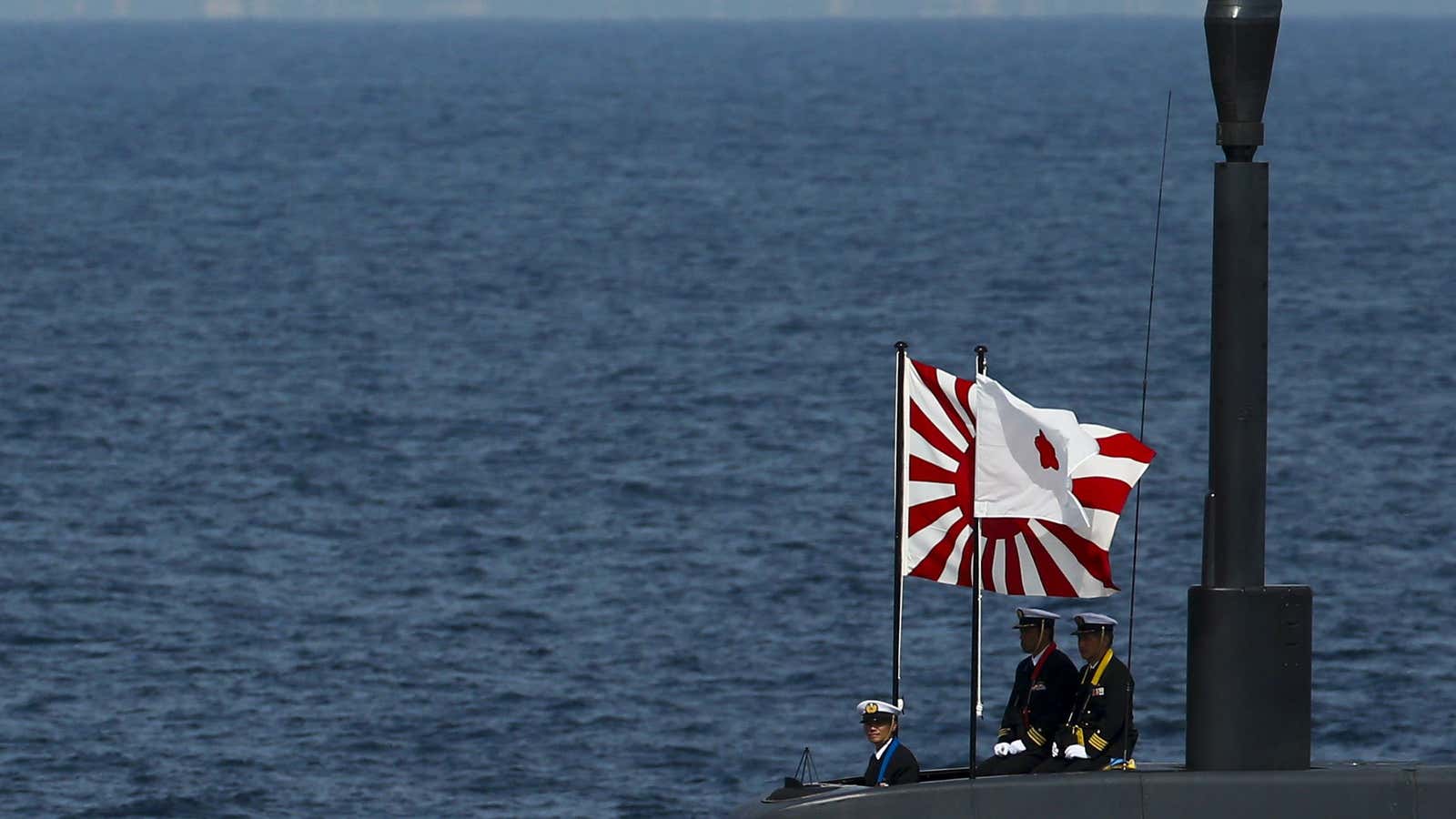One of the world’s most lucrative defense contracts went to France’s DCNS Group today (April 26). The state-owned naval contractor will build 12 next-generation submarines for Australia, in a deal valued at $40 billion. The French group beat out German and Japanese rivals for the contract.
The Japanese consortium, featuring Mitsubishi Heavy Industries and Kawasaki Heavy Industries, was considered the front-runner for much of the competition, a remarkable feat given that Japan’s ban on military exports was only lifted in 2014, loosening military restrictions put in place after World War 2.
“We will ask Australia to explain why they didn’t pick our design,” said Japanese defense minister Gen Nakatani.
As part of its sales pitch, Japan’s bidders highlighted the escalating tensions in the South China Sea, where China has been moving missiles, building islands, and making sweeping territorial claims to the chagrin of its neighbors. Nakatani cast the bid in the context of freedom of the seas. “Both of our nations are maritime nations and we have a key interest in freedom of navigation,” he said last November.
But Japanese companies’ inexperience bidding for big defense contracts hurt them, according to sources who spoke to the Financial Times (paywall). Even the simple fact of which company would take the lead—Mitsubishi, it turns out—wasn’t established until well into the bidding process.
In the end, France offered a more appealing package, namely by sharing technology and pledging to build the subs in Australia. The latter was a strong selling point, allowing Australian prime minister Malcolm Turnbull and his Liberal party to score points ahead of July elections. The deal, Turnbull said, will see “Australian workers building Australian submarines with Australian steel here, where we stand today, for decades into the future.”
Japanese companies are world-class exporters, but in unfamiliar, sensitive industries like defense, they have a lot to learn about how to meet customers’ needs.
